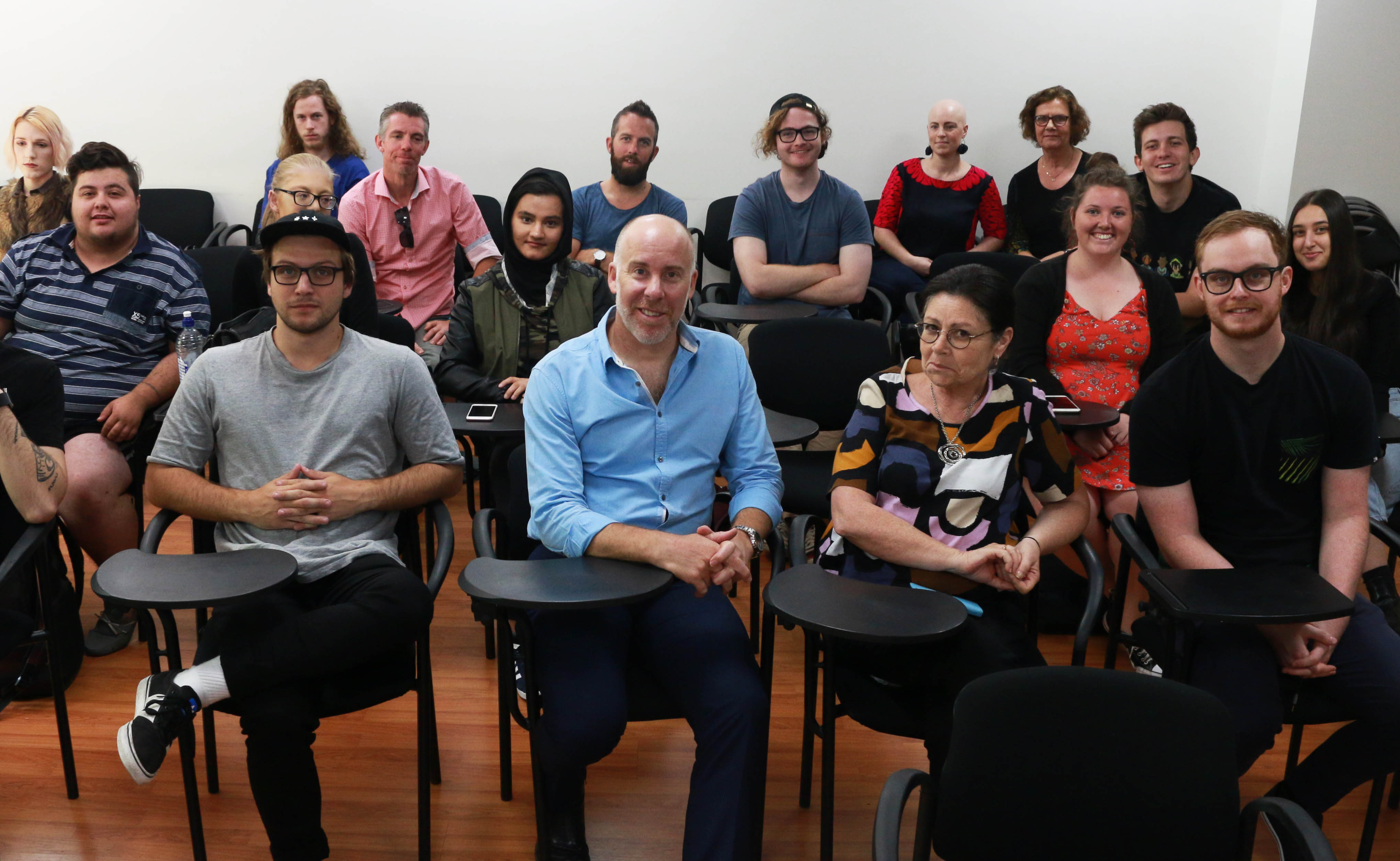Fairfax World and Investigations editor Michael Bachelard drops by the Macleay Melbourne newsroom to discuss his award-winning work in Iraq, the saga of Barnaby Joyce and the joys of journalism.
Interview and story by Jordan Buchanan.
Michael Bachelard, the Gold Walkley award winner for 2017, had distinctly mixed feelings as the Barnaby Joyce saga began to unfold.
“I find myself at odds with most of the journalistic community here, and my own family, in thinking that, I feel pretty squeamish about the reporting of it,” he said, referring to front page pictures the Daily Mail ran of Joyce’s pregnant partner, Vikki Campion.
However, Bachelard said it undeniably exposed issues of importance to Australians, with stories developing around the deputy Prime Minister living rent free and approving highly paid jobs for Ms Campion.
“A lot of stuff that is clearly in the public interest has come out,” he said, “and that wouldn’t of come out if the question of the affair had not come out.”
Having spent years in the Canberra press gallery, Bachelard understands the tension between politics, ethics and the public interest better than most.
Since leaving Canberra, he has gone on to become the foreign editor for Fairfax and investigations editor for The Age in Melbourne. Last year he won the Gold Walkley with photojournalist Kate Geraghty for their stories from Mosul multimedia package.
There are distinct challenges that come with reporting from conflict zones, Bachelard said. Readers often feel distant and instinctively feel people in war zones aren’t like them. So when writing these stories, Bachelard tried to bridge that divide.
“These are people in a really extreme environment, but they are human beings,” he said. “We should recognise them and say, this is a common humanity.”
He was asked whether it is hard to come back home and settle in after reporting on places as confronting as Mosul.
“We have had numerous foreign correspondents that have struggled to reintegrate,” he said.
“I probably did alright but that’s because I got a pretty challenging job when I got back. The first few stories I worked on were of enormous global significance.”
“They weren’t tabloid stuff. I would find it difficult to come back and report on road accidents.”
Bachelard was modest about his beginnings as a foreign correspondent in Indonesia.
“There are probably two kinds of correspondents,” he said. “There are those who have expertise in the area before they start and there are those that are good journalists that are sent to go and be good journalists in another country.”
“I was definitely in the latter category. I knew absolutely nothing about Indonesia. I hadn’t even been to Bali”.
“It was what I described at the time (as) a vertical learning curve”
Asked what primary characteristic defines being a good journalist, the Gold Walkley award-winner didn’t hesitate.
”Curiosity is the most important attribute you can have when going out into the world of journalism.”


